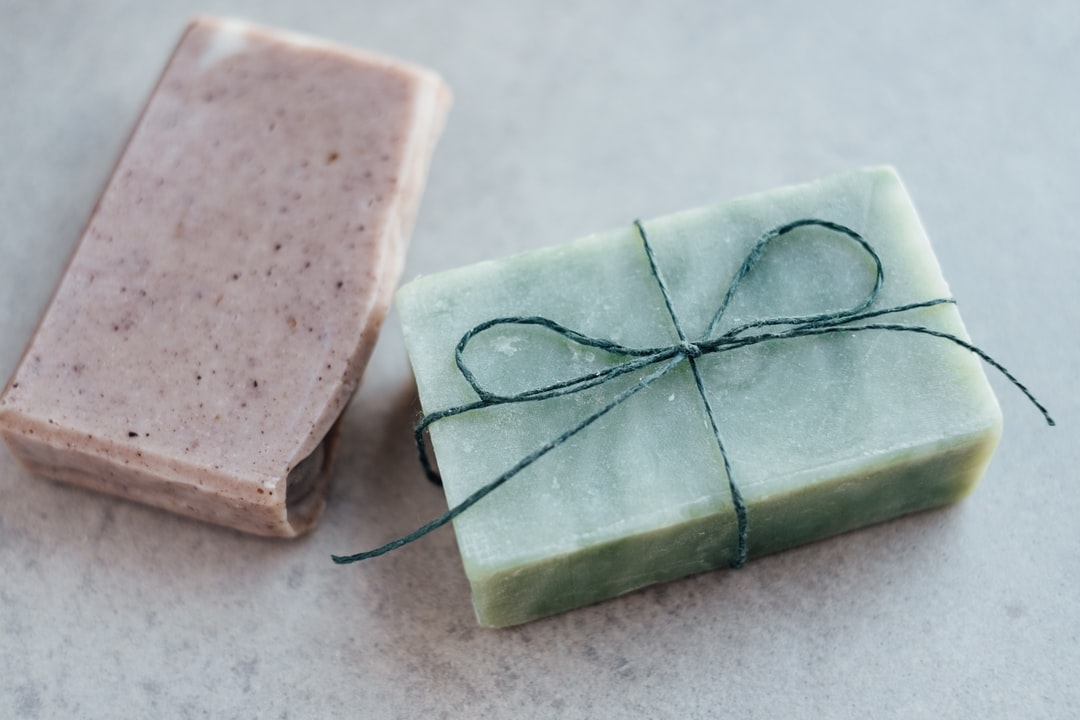Neutral soap is a hypoallergenic product that has a pH similar to that of human skin. These properties make it very well tolerated by all skin types. Find out more here.
Neutral soap has a pH very similar to that of human skin and, therefore, it is recommended for sensitive skin. This type of soap does not contain dyes, perfumes, or other components that are usually present in industrial-type soaps.
It is noteworthy that neutral soap works for all skin types , but it also makes great contributions to the scalp and hair in general. In any case, you have to take precautions because not all the soaps that are advertised as neutral really are.
What is neutral soap
Neutral soap is a product that has a pH similar to that of human skin . PH is a value that indicates the degree of acidity of a substance and is measured with numbers ranging from 0 to 14 degrees. The pH of our skin is 5.5 and that of neutral soaps is also, or has a value very close to this.
This type of soap is generally made from natural oils or animal fats. They are typically white or beige in color . If they have a different shade, a different component may have been added, either handcrafted or industrial.
Soaps in this class are hypoallergenic, which means that they have a very low risk of producing allergies , although this is not ruled out. Thanks to the fatty acids they have moisturizing properties and also hygroscopic properties, which means that they absorb moisture from the medium and transfer it to the skin.
What is a neutral soap for?
Neutral soap has multiple uses, but the most frequent of them is the daily general cleaning of the face and body . Due to its properties, this type of product is frequently used by those who have sensitive skin or those with a dermatological problem.
Soaps of this type are ideal for both dry , oily and combination skin . In the case of dry skin, it provides moisture, especially if it is made with glycerin. In the case of oily skin, it helps to eliminate the accumulated fat in the pores and breaks down the sebum that is present in pimples and blackheads.
It is also frequently used on skin that presents irritations. However, there are other uses that are rare, but also apply . These are:
- It is ideal for cleaning wounds before healing .
- Contributes to the health of the scalp . In general, it leaves the hair clean and hydrated.
- Eliminates the musty smell in cabinets . A piece of this soap in the closet helps remove bad odors.
- Utensil cleaning . A soap of this type, along with a little vinegar, helps to clean grease from kitchen utensils.
- Maintenance of locks . Cleaning the locks with this soap keeps them soft and in good condition.
- Lubrication of doors and windows . Eliminates annoying squeaks on damaged hinges.
When to use it
Many people are allergic or sensitive to ordinary soap, but are not sure about this . The easiest way to check it is to examine if there is any type of irritation after using the product. If so, you should stop using it for a few days and use it again later. If the irritation appears again there is an allergy to that soap.
Itching or itching are also signs of allergy after using the soap, even if there is no visible sign of irritation. Any kind of burning or pain after washing with soap indicates the same. A soap should never cause annoying symptoms when using it. If this occurs, the skin is probably not assimilating the product well.
People with skin allergies or overly sensitive skin react to common components of commercial soaps. In particular triclosan, formaldehyde, parabens and / or lauryl sodium sulfate. When adverse reactions occur it is best to start using a neutral soap.
It is never ruled out that neutral soaps can also cause an adverse reaction , especially in excessively sensitive skin. Therefore, it is best to test first, putting a little soap on the forearm. If there is no reaction, its use is safe.
